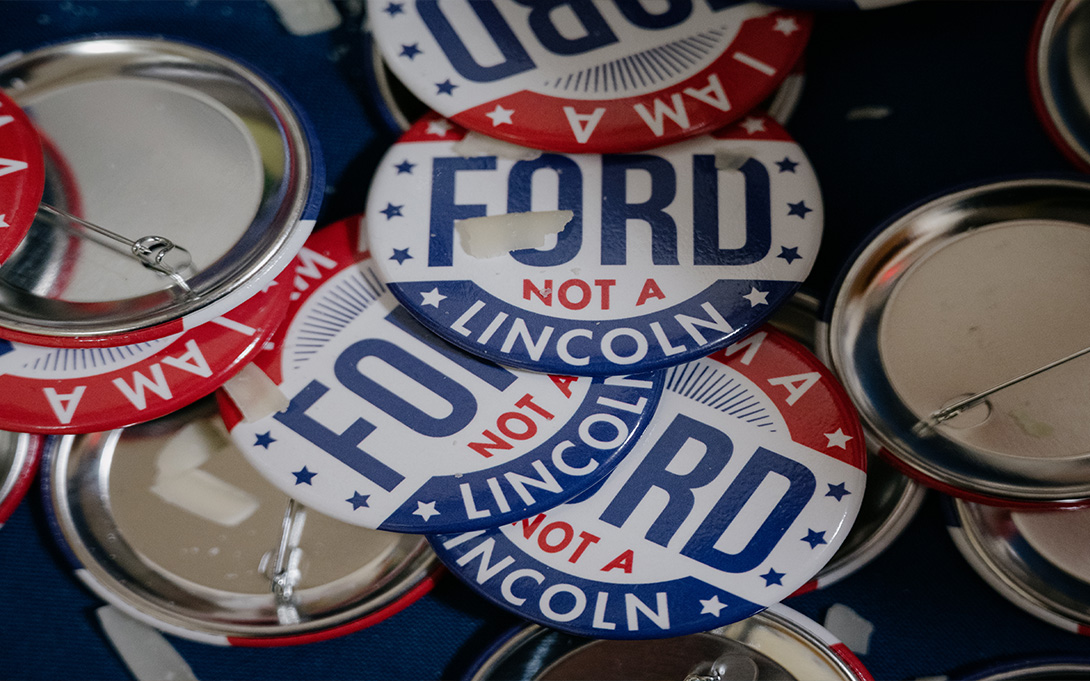
For many Americans, President Gerald Ford was the genial accident of history who controversially pardoned his Watergate-tarnished predecessor, presided over the fall of Saigon, and became a punching bag on Saturday Night Live. Yet as Richard Norton Smith reveals in a new biography, Ford was an underrated leader whose tough decisions and personal decency look better with the passage of time.
Smith visited the Ford School to discuss the book, “An Ordinary Man: The Surprising Life and Historic Presidency of Gerald R. Ford.” Hank Meijer joined Smith to lead a community conversation about the school’s namesake. The event was supported by the Gerald R. Ford Presidential Foundation and the Gerald R. Ford Presidential Library & Museum.
“With the passage of time, Gerald Ford becomes more a name on the door of Weill Hall and an image in paintings and photographs throughout its first floor rather than someone who conjures up vivid memories,” Professor Barry Rabe wrote to the Ford School community prior to the event. “Richard Norton Smith’s upcoming visit to discuss his long-awaited biography of Gerald Ford offers the Ford School community a unique opportunity to better understand the life and political career of a figure who looms large in the development of our school and our ongoing pursuit of its mission.”
The book provides an eye-opening account of the life of Gerald R. Ford, an underrated leader whose tough decisions and personal decency are more relevant now than ever. Norton Smith and Meijer discussed some of President Ford’s early advocacy, including during his time here at the University of Michigan standing up for Willis Ward, a fellow football player who was Black.
“There's a statue (of Ford) in the Rotunda of the capital appropriately, as I write in the book, a short walk away from a bust of Martin Luther King,” Norton-Smith said. “Four million people a year walk through that space and at its best, what it reminds us is that America is very much a work in progress. And in their own way, Gerald Ford and Willis Ward and Dr. King were part of that.”
Discussing President Ford, Gleaves Whitney, executive director of the Gerald R. Ford Presidential Foundation, said, “This is Ford’s time, now more than ever. He was good then, in the 1970’s, and he’s better now, in our contemporary debates.”
Smith was able to write the definitive book as he had interned for President Ford, wrote for President Ford, and directed the Ford Presidential Library Museum.
What set Ford apart from previous presidents or politicians was his commitment to evidence-based policymaking, a key value of the Ford School.
"When President Ford was here there was no Ford School. But the Ford School, in its origins and today, continues to have a real strength in its emphasis on really substantive policy and the data that supports it,” Meijer said. “President Ford was singular among modern presidents in his intense policy wonkery — it would really do a Ford school student proud.”
View the entire event about President Ford.
